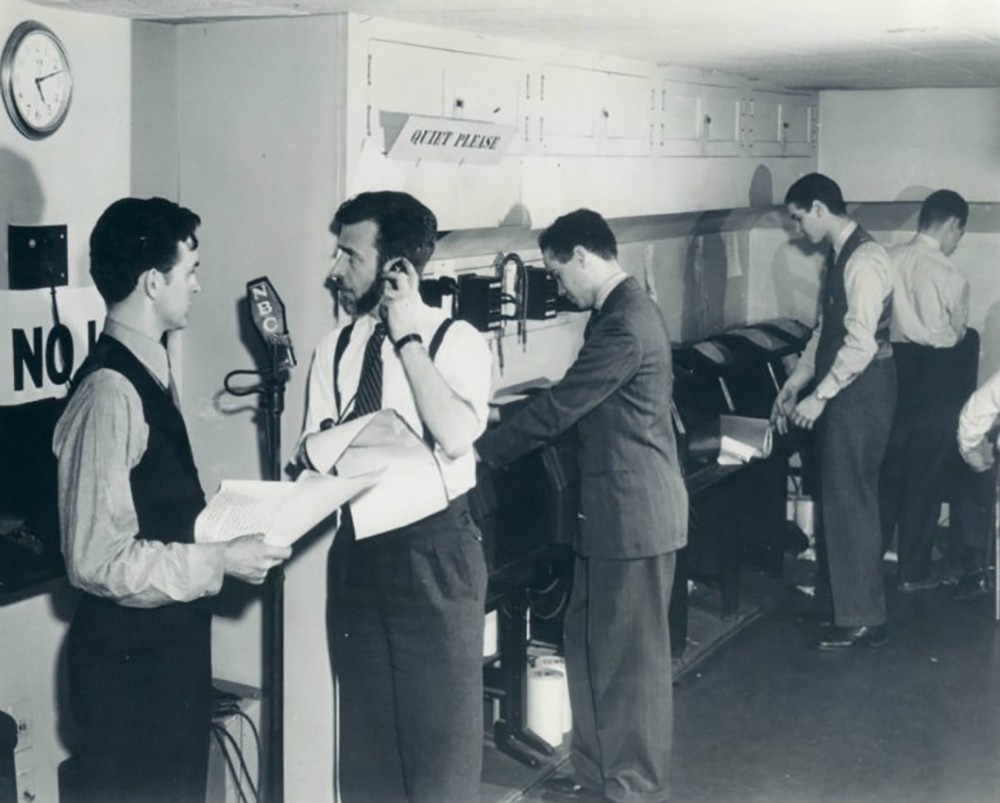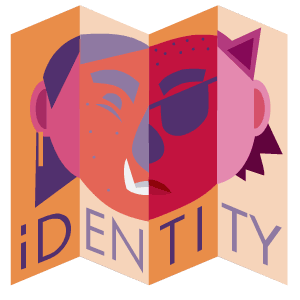

I freelance as a radio reporter. When I’m doing a story for a daily news show, the editorial process is often pretty streamlined–I don’t get a lot of direction about what I should sound like. We freelancers sweat out our narration under our duvet covers or in our closets and send it off to be broadcast. But even without anyone else telling us we need to, we feel a pressure to sound a particular way, to speak with a particular rhythm.
Our idea of what makes a good “radio voice” has evolved over the years–but the idea that such a thing exists at all is somehow self-perpetuating. Decades ago, one of America’s most famous radio personalities tried to disrupt this self-imposed vocal tyranny. Ira Glass says that when he first started This American Life, no one else sounded like him–that he had made a deliberate choice to sound conversational instead of distant and authoritative. But rather than encouraging other on-air personalities to experiment with their natural intonations, Glass’s reign in the public radio world has encouraged many people to try to sound just like him.
Even people like me–who grew up speaking like most people on TV most of the time–feel a need to modulate and even hide our natural speech when we’re recording ourselves for the radio. The pressure to conform is even greater for people who grew up with another mother tongue, or another kind of English than what we usually hear on public radio. Chenjerai Kumanyika, a hip-hop artist and public radio journalist, wrote about that pressure for NPR’s Code Switch.
While editing my script aloud, I realized I was also imagining another voice, one that sounded more white, saying my piece.
Without being directly told, people like me learn that our way of speaking isn’t professional. And you start to imitate the standard or even hide the distinctive features of your own voice.
Kumanyika says that no one public radio authority told him that he had to speak a certain way, but years of cultural learning did. Similarly, in the U.K., the BBC claims that it does not impose an accent on anyone, but people assume the BBC coaches its presenters to speak with “received pronunciation” simply because most of them do. (And having a different accent will mean you get paid less.)
While a body like the BBC may be able to claim that this conformity is self-imposed and self-selecting, it actually isn’t. Broadcasters, and the people who listen to them, are accepting the status quo, and in doing so, we are making our ears lazy. Even the radio voices we imagine in our heads are uniform, boring.
Human beings have the capacity to understand a much wider variety of languages and dialects than people from primarily English-speaking countries are willing to realize. I recently came back from a reporting trip to India, and I’m turning some of the reporting I did there into stories for public radio. I know that some quotes–good quotes–are going to end up on the cutting room floor because some Americans won’t be able to understand the particular type of English that the subject is speaking.
This sacrifice of material for the delicacy of the American ear is especially ironic because of where the material is coming from: in India, most people are multilingual, and speak not only multiple regional languages but can also understand a wide array of Hindi dialects that still sound wildly different to me. I don’t know if I would have been able to learn Hindi if it weren’t for the profound generosity of Indian ears; they managed to understand me, even when at the beginning, I could barely get a sentence out.
If instead of making the acceptable “radio voice” as uniform as possible, we did the opposite, and deliberately chose subjects whose English would challenge the ears of monolingual Americans, I wonder how long it would take for listeners to adapt. In a globalizing society–where, in many parts of the world, English in all its forms is the lingua franca–the ability to understand as many accents as possible is a key part of communication. And if everyone hears someone who sounds like them on the radio, at least sometimes, they’ll have more reason to keep listening.


How We Get To Next was a magazine that explored the future of science, technology, and culture from 2014 to 2019. This article is part of our Identity section, which looks at how new technologies influence how we understand ourselves. Click the logo to read more.
